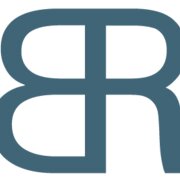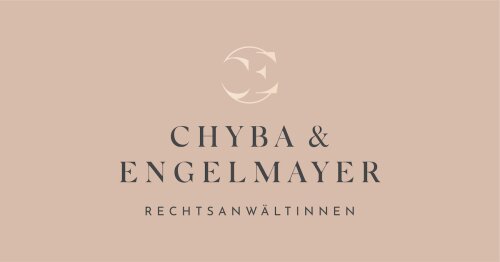Best Toxic Mold Lawyers in Vienna
Share your needs with us, get contacted by law firms.
Free. Takes 2 min.
List of the best lawyers in Vienna, Austria
About Toxic Mold Law in Vienna, Austria
Toxic mold is a significant health concern in many regions, including Vienna, Austria. Toxic mold refers to various types of molds that can produce mycotoxins, which may cause adverse health effects ranging from allergic reactions to severe respiratory problems. In Vienna, the laws surrounding toxic mold aim to protect the health and well-being of residents by regulating building maintenance, tenant rights, and property owner responsibilities. Understanding these laws can help individuals address mold issues effectively and protect their legal rights.
Why You May Need a Lawyer
Legal assistance may be necessary in several situations involving toxic mold, such as:
- Disputes between tenants and landlords over mold remediation and property repairs
- Health issues arising from mold exposure leading to compensation claims
- Property damage due to mold that necessitates an insurance claim
- Ensuring compliance with local building codes and health regulations
- Representation in legal proceedings if an agreement cannot be reached amicably
Seeking legal advice can help navigate these complex situations and ensure your rights are safeguarded.
Local Laws Overview
Vienna's local laws relevant to toxic mold primarily focus on housing standards and tenant protections. Key aspects include:
- Building Maintenance: Property owners are legally required to maintain buildings in a state that prevents health hazards, including mold.
- Tenant Rights: Tenants have the right to live in a habitable environment. If toxic mold is found, tenants can request remediation from the landlord.
- Health Regulations: The Vienna Health Authority offers guidelines and instructions for mold remediation and maintaining indoor air quality.
- Contractual Agreements: Lease agreements may include specific clauses related to mold prevention and responsibility for repairs.
Understanding these laws can help individuals know their rights and responsibilities when dealing with toxic mold issues.
Frequently Asked Questions
What is toxic mold?
Toxic mold refers to mold species that produce mycotoxins, potentially harmful substances that can cause health issues like allergies, respiratory problems, and other serious diseases.
What are the health effects of toxic mold?
Health effects can vary from mild allergic reactions, such as sneezing and skin rashes, to more serious respiratory problems, chronic fatigue, and even neurological issues.
How can I identify toxic mold in my home?
Toxic mold often appears as black or greenish patches. It may have a musty odor and can often be found in damp, poorly ventilated areas like basements, bathrooms, or around windows.
What should I do if I find toxic mold in my rental property?
Report the issue to your landlord immediately in writing. The landlord is typically responsible for addressing and remediating mold problems to ensure a safe living environment.
Can I withhold rent if my landlord doesn't address the mold problem?
Withholding rent is not advisable without legal counsel. Consult a lawyer to explore appropriate legal actions such as filing a complaint with local health authorities.
Who is responsible for mold remediation, the tenant or the landlord?
Generally, landlords are responsible for major mold remediation, especially if it arises from structural issues. Tenants are usually responsible for minor maintenance and ensuring adequate ventilation.
What legal actions can I take if I'm affected by toxic mold?
Legal actions can include filing a claim for damages, seeking compensation for health issues, and involving local health authorities. Consulting a lawyer is critical to determine the best course of action.
Can I break my lease if there is toxic mold?
Potentially, if the landlord fails to remedy the issue and the property is deemed uninhabitable. Legal advice is recommended to navigate this process and avoid potential liabilities.
Are there specific laws in Vienna regarding indoor air quality standards?
Yes, the Vienna Health Authority provides guidelines to ensure indoor air quality, which includes regulations for controlling moisture and preventing mold growth.
How can I prove that the mold in my home is toxic?
Professional mold testing and inspection can determine the presence and type of mold. These reports can serve as evidence in legal and health-related claims.
Additional Resources
For further assistance on toxic mold issues in Vienna, the following resources can be helpful:
- Vienna Health Authority: Provides guidelines and support for mold-related health concerns.
- Tenant Protection Services: Offers advice and mediation services for tenant-landlord disputes.
- Austrian Bar Association: Helps find qualified lawyers specializing in environmental and property law.
- Insurance Companies: Can provide information on coverage for mold-related damages.
Next Steps
If you suspect toxic mold in your property or have encountered issues related to mold, follow these steps:
- Document Evidence: Take photos and note down occurrences related to mold growth and health complaints.
- Notify Relevant Parties: Inform your landlord or property owner in writing about the mold issue.
- Seek Professional Help: Consider getting a professional mold inspection to assess the severity and type of mold.
- Consult a Lawyer: Contact a lawyer specializing in toxic mold law to understand your legal options and rights.
- Follow Legal Procedures: Work with your lawyer to take appropriate legal actions, such as filing complaints or claims if necessary.
These steps will help ensure the issue is addressed promptly and your legal rights are protected.
Lawzana helps you find the best lawyers and law firms in Vienna through a curated and pre-screened list of qualified legal professionals. Our platform offers rankings and detailed profiles of attorneys and law firms, allowing you to compare based on practice areas, including Toxic Mold, experience, and client feedback.
Each profile includes a description of the firm's areas of practice, client reviews, team members and partners, year of establishment, spoken languages, office locations, contact information, social media presence, and any published articles or resources. Most firms on our platform speak English and are experienced in both local and international legal matters.
Get a quote from top-rated law firms in Vienna, Austria — quickly, securely, and without unnecessary hassle.
Disclaimer:
The information provided on this page is for general informational purposes only and does not constitute legal advice. While we strive to ensure the accuracy and relevance of the content, legal information may change over time, and interpretations of the law can vary. You should always consult with a qualified legal professional for advice specific to your situation.
We disclaim all liability for actions taken or not taken based on the content of this page. If you believe any information is incorrect or outdated, please contact us, and we will review and update it where appropriate.











